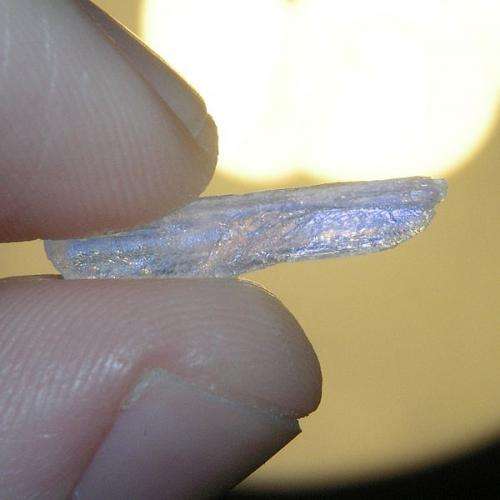Freshwater methamphetamine pollution turns brown trout into addicts

Human pollution is often evident from oil slicks and plastic drifting on shore, but many of the drugs humans consume also end up washing out into the water, and current effluent treatment isn't equipped to deal with them. Drugs such as fluoxetine—also known as Prozac—creeping into waterways can embolden fish and alter their behavior, but pharmaceutical pollution doesn't end with prescribed medication. Illegal drugs, such as methamphetamine, can also accumulate in waterways.
"Whether illicit drugs alter fish behavior at levels increasingly observed in surface water bodies was unclear," says Pavel Horký from the Czech University of Life Sciences Prague, Czech Republic. He and his colleagues, from the same university and the University of Southern Bohemia in České Budějovice, Czech Republic, have investigated whether brown trout (Salmo trutta) are at risk of addiction from illegal methamphetamine in their waterways; the researchers discovered that they are. The team has published this alarming discovery in the Journal of Experimental Biology.
After isolating brown trout in a tank of water laced with 1 μg l-1 methamphetamine (a level that has been found in freshwater rivers) for eight weeks, Horký and colleagues transferred the fish to a freshwater tank and checked whether the animals were experiencing withdrawal—offering them a choice between freshwater or water containing methamphetamine—every alternate day for 10 days. If the fish had become addicted to the low levels of methamphetamine in their water, they would be feeling the effects of withdrawal and would seek the drug when it was available.
Tracking the fish's choices, it was clear to the team that the trout that had spent two months in methamphetamine-contaminated water had become addicted, selecting water containing the drug as they suffered withdrawal during the first four days after moving to freshwater. In addition, the addicted fish were less active than trout that had never experienced the drug, and the researchers found evidence of the drug in the fish's brains up to 10 days after the methamphetamine was withdrawn. It seems that even low levels of illicit drugs in waterways can affect the animals that reside there.
Horký is also concerned that drug addiction could drive fish to congregate near unhealthy water treatment discharges in search of a fix, as well as disturbing their natural tempo of life. "The elicitation of drug addiction in wild fish could represent another example of unexpected pressure on species living in urban environments," he suggests.
More information: Pavel Horký et al, Methamphetamine pollution elicits addiction in wild fish, Journal of Experimental Biology (2021). DOI: 10.1242/jeb.242145
Journal information: Journal of Experimental Biology
Provided by The Company of Biologists





















